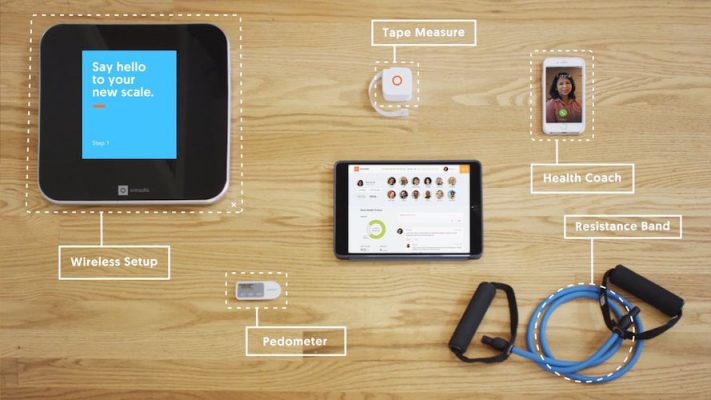Behavior change is one of the most challenging parts of health care. Coaching has been shown to help patients adopt the habits they need to treat or prevent some of the most costly chronic conditions. Omada Health offers a digital platform that offers patient support groups, one-on-one coaching, online learning and connected devices. Northeast Valley Health Corporation and Petaluma Health Center both piloted this program, trying it out with staff and patients.
Seeing the Problem
Risks like high blood pressure, high blood sugar, high blood fats and obesity can lead to costly chronic health conditions. Lowering these risks often takes changes in behaviors like physical activity and eating habits, but forming and keeping good habits can be difficult. It’s often not enough to just tell patients the changes that they need to make. Patients may backslide, or not adopt new habits fully. Real outcome improvements need discipline, but even programs like Weight Watchers don’t always provide the right structure to achieve this. Participants in such programs may rubber-band between meeting goals, slacking off, and then needing to catch up before their next goal—which does not build a real habit. More extensive support may be needed. However every patient is different, and thus require different forms of support and motivation.
A Multifaceted Approach
Omada Health is a digital health company that provides a health coaching platform for people at risk of chronic disease. Patients join a group with whom they share a health goal (such as reducing bodyweight by 7%), and work with a coach, both individually and as a cohort, to reach that end. They are provided with online curriculum, including games, to help them learn, and they use connected devices such as a high-tech scale to track their progress. This progress can be shared online with their group, allowing for friendly competition. This diversity of tools allows patients to engage with the program in whatever ways motivate them most.
Investing in Prevention
The platform is often adopted by employers seeking to support in the long-term health of their workers. While health coaching is commonly provided in large organizations, Omada is a way for smaller organizations to offer these resources as well. Organizations with just a handful of employees can join larger online cohorts to receive group coaching.
Coming to the Safety Net
In addition, Omada is testing its platform out with community health centers, as a way to offer health coaching for patients. Petaluma Health Center and Northeast Valley Health Corporation both piloted patient groups as part of CCI’s Technology Hub program, as well as offering the platform to some of their staff. These pilots were part of a study by Omada testing out low-literacy and Spanish-language versions of their curriculum.
How It Works
- Participants who meet eligibility criteria are connected to the program through their employer or their health center. They sign up and are matched with a coach and support group based on their health aims.
- After measuring their metrics on specific risk factor for heart disease and type 2 diabetes, participants are given a goal. These goals are usually percentage-based, allowing group members to share and compete no matter what point they are starting from.
- Omada sends participants a wireless digital scale, pedometer, exercise bands and other peripherals. The connected devices are already synched up to the participant’s Omada account.
- Participants are asked to step on the scale every day. The scale automatically sends the information to Omada to update the participant’s progress. Participants also enter the food they eat every day, as well as track their steps and other physical activity.
- Omada provides health education curriculum that participants can access online to learn more about the best ways to make better health choices and build better health habits.
- Over the course of a 16 week program, participants receive two individual calls with their coach to get personalized health advice. They also receive weekly emails and exchange messages with their support group.
- As participants go through the program, their progress is tracked in a small bar filling on the Omada interface. If they reach their goal, they are given a new additional goal: lose another 7% of their bodyweight, for instance.
Lessons from Practice
- The most successful participants used all parts of the platform.
- It’s important to find a balance between the desires of some groups to meet in person, and participation online. Omada is most useful for individuals or groups that can’t meet regularly, and instead need to connect to their health coaching remotely.
- Signing up can be a big barrier for some patients, and thus can benefit from some handholding by their health center.
- Some employees were interested in being in a group with their coworkers, while others preferred to share health goals with strangers.
What’s Next?
NEVHC is now working to collect health metrics on the 103 patients they recruited for their pilot program. PHC has expanded their Omada staff offerings to over 50 employees.
Learn More
- Petaluma Health Center: phealthcenter.org
- Northeast Valley Health Corporation: nevhc.org
- Learn more about Omada Health at their website: omadahealth.com
- The Technology Hub program is supported by the California Health Care Foundation.

